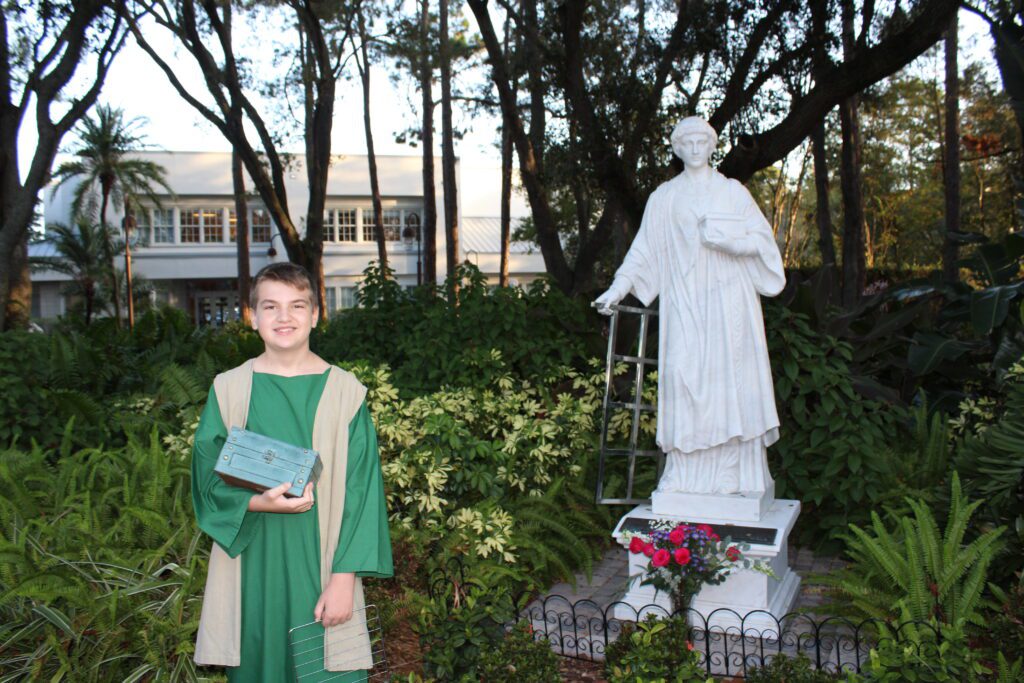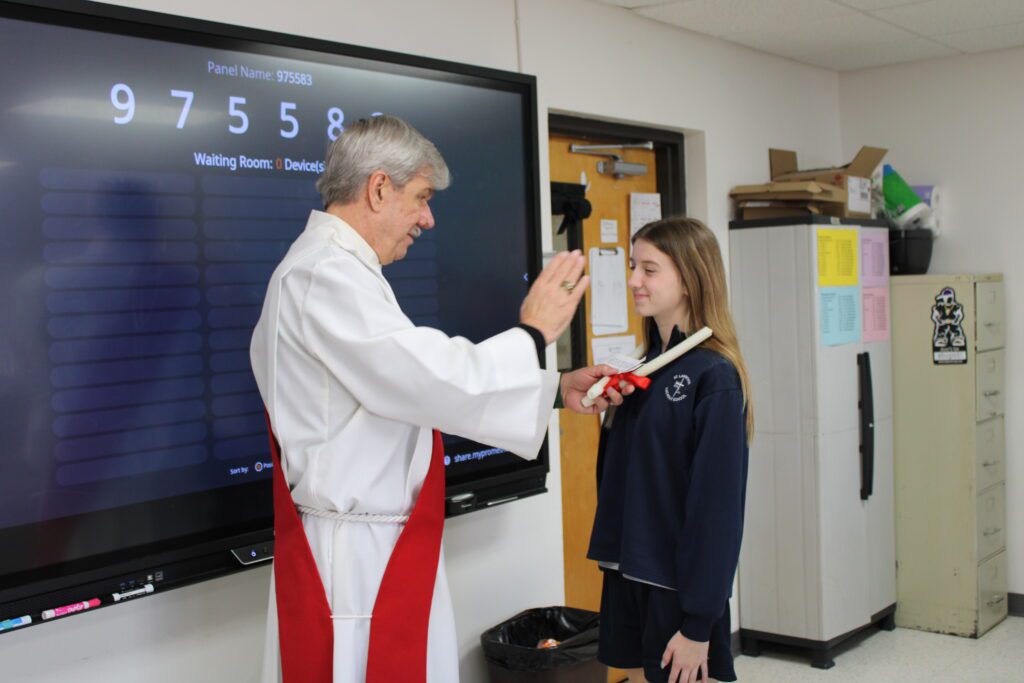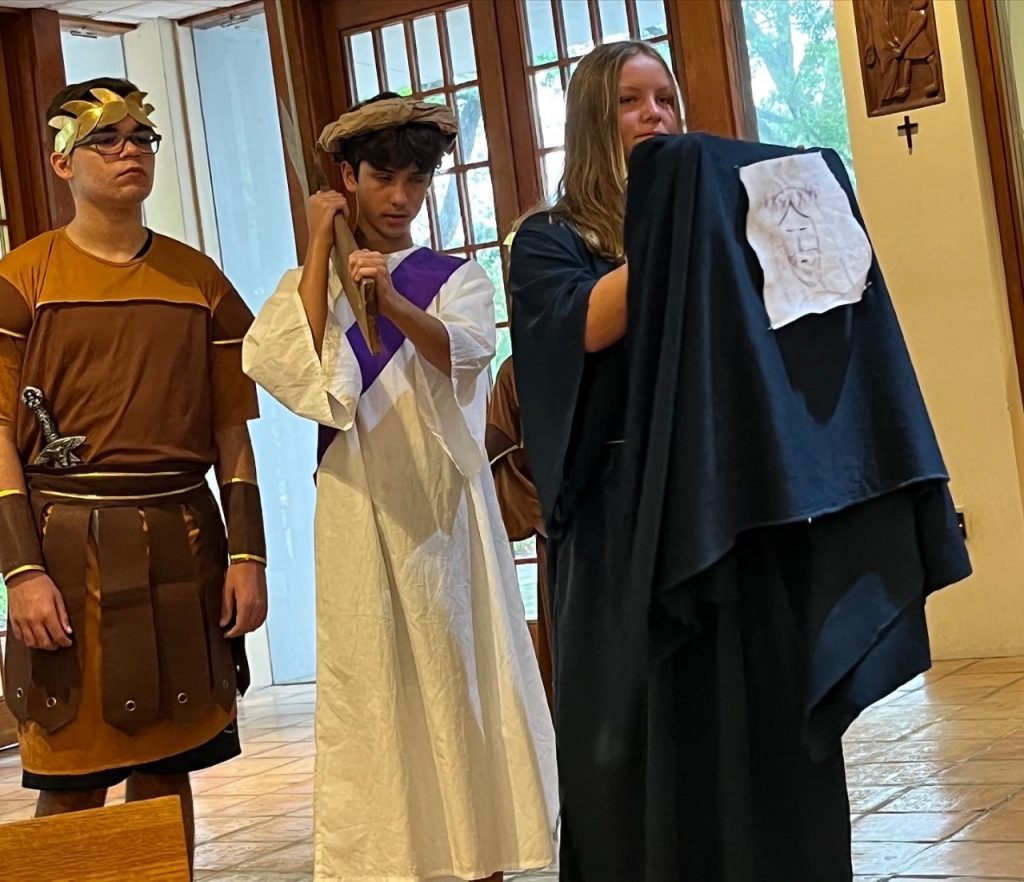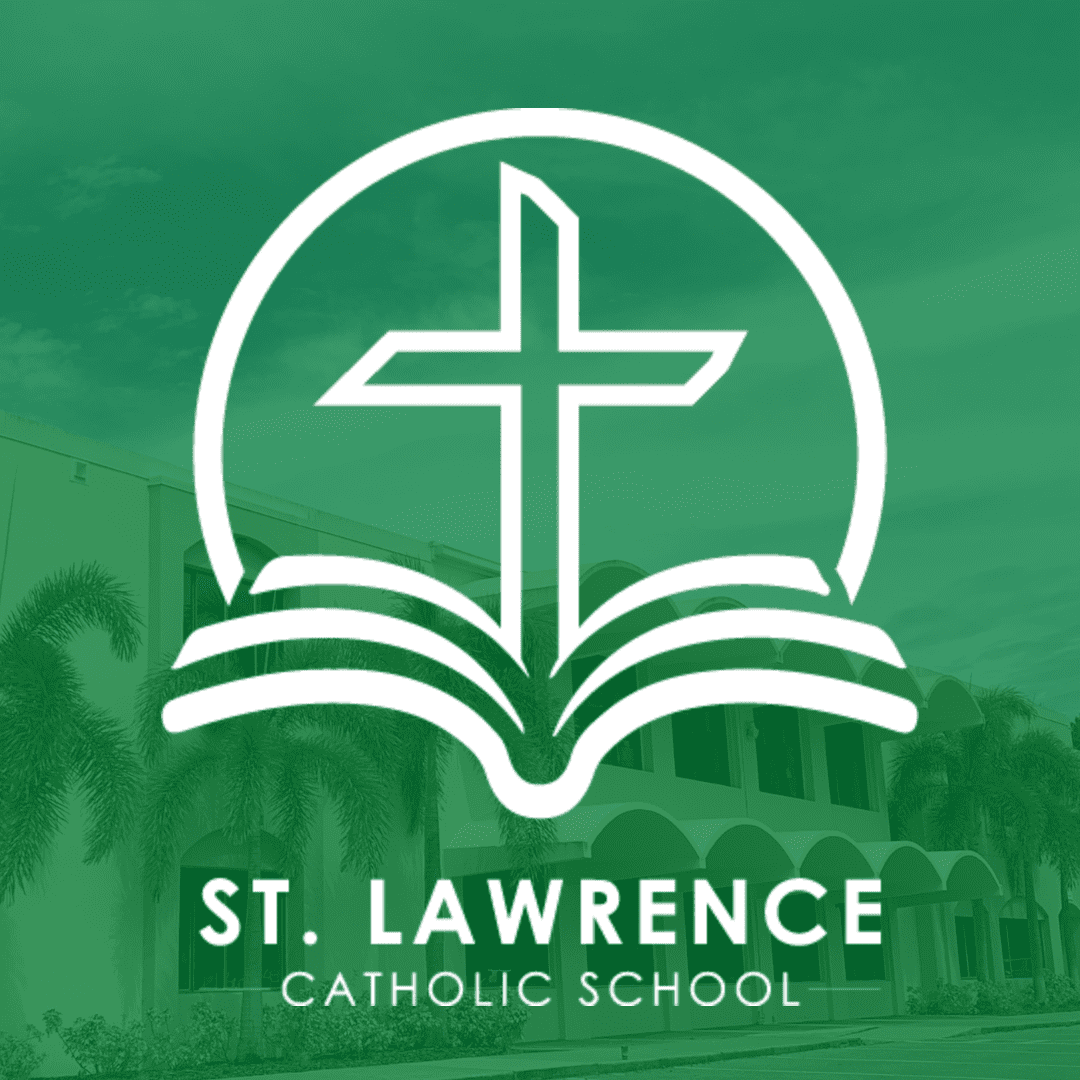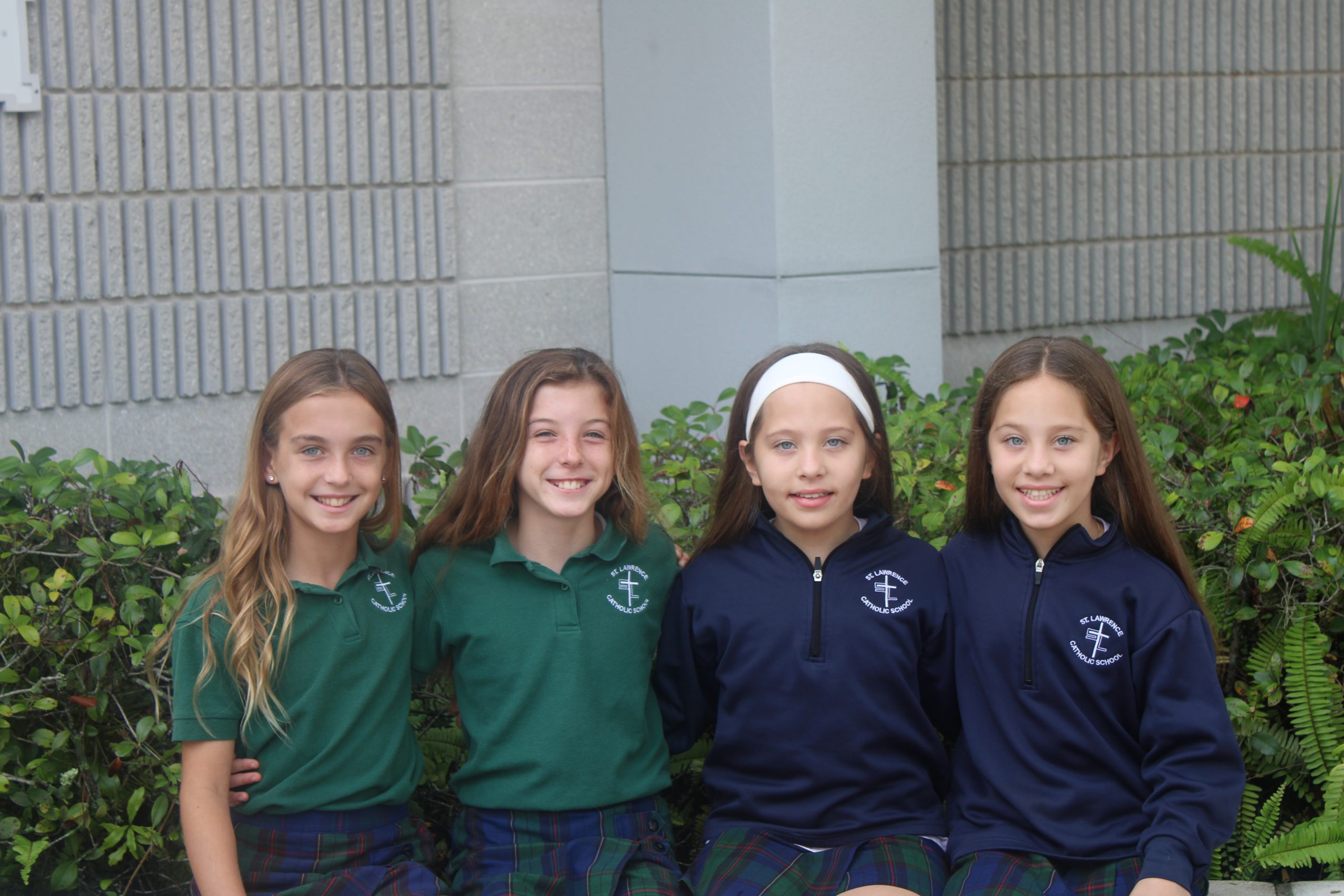Math
The mathematical curriculum affords students the opportunity to successfully understand concepts and develop the skills necessary to meet the needs of everyday life. Students use the basic foundations of mathematics through skills, practice and application. They are encouraged to apply different strategies and analytical methods to solve real world problems. Multiple tools are used for teaching, learning and assessing: textbook, digital resources, projects, as well as cross curricular activities and traditional tests and quizzes.
Math levels are determined by teacher input, standardized test scores, placement tests and grades. Students in middle school will be placed accordingly into regular or honors classes to meet each individualized need.
The grade six curriculum emphasizes real world connections and application of arithmetic for problem solving using expressions and equations, ratios and proportions, as well as Geometry and Statistics. The conceptual understandings gained throughout 6th grade prepare students for a successful transition to Pre Algebra in 7th grade.
In grade seven, Pre-Algebra, Glencoe/McGraw Hill, mathematical skills will be further developed and the practice will focus on the understanding of concepts in greater depth. The four areas of emphasis are (1) developing understanding of and applying proportional relationships; (2) developing understanding of operations with rational numbers and working with expressions and linear equations; (3) solving problems involving scale drawings and informal geometric constructions, and working with two- and three-dimensional shapes to solve problems involving area, surface area, and volume; and (4) drawing inferences about populations
In grade eight, Algebra 1 (Glencoe/McGraw Hill Math) will focus on content that is important for all students to prepare them for the study of advanced mathematics in the years ahead. This year’s mathematical skills will be further developed and the practice will focus on the understanding of concepts in greater depth. Topics covered in this course include: problem solving, including multi-step problems, numerical and algebraic vocabulary and expressions, real numbers properties, solving and analyzing linear equations, graphing relations and functions, solving systems of linear equations and inequalities, polynomials, factoring, quadratic and exponential functions, radical expressions and triangles, data analysis and probability.
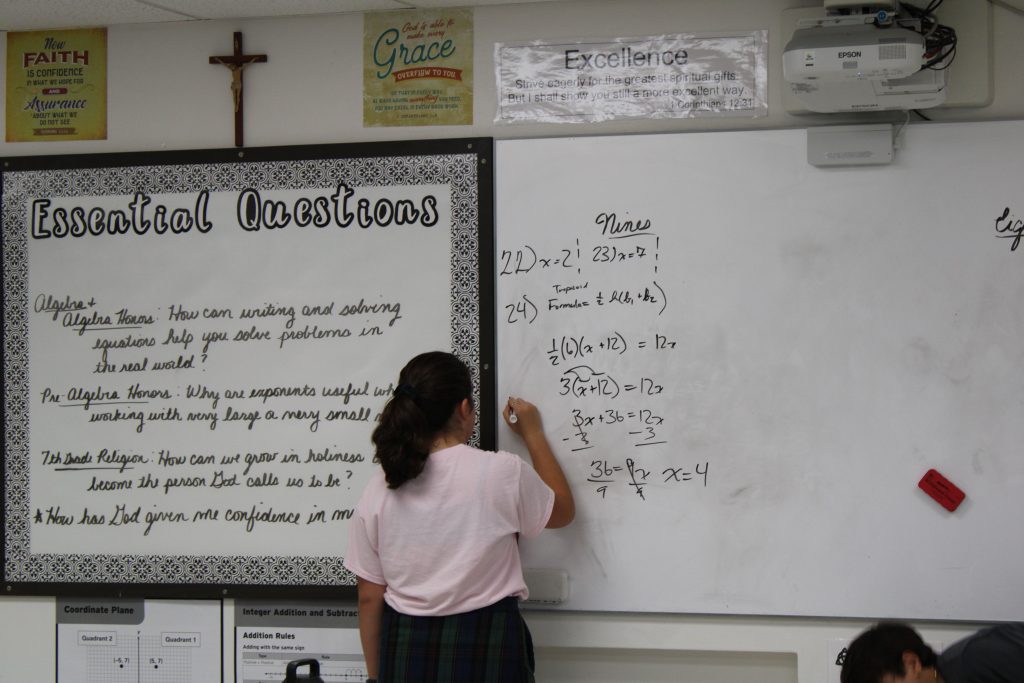
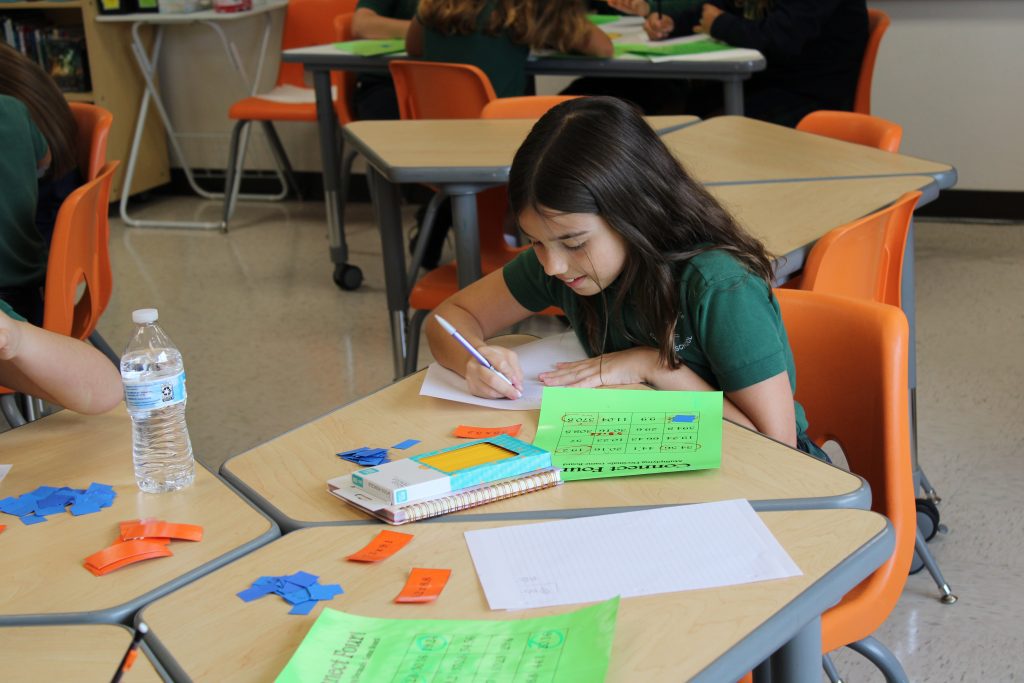
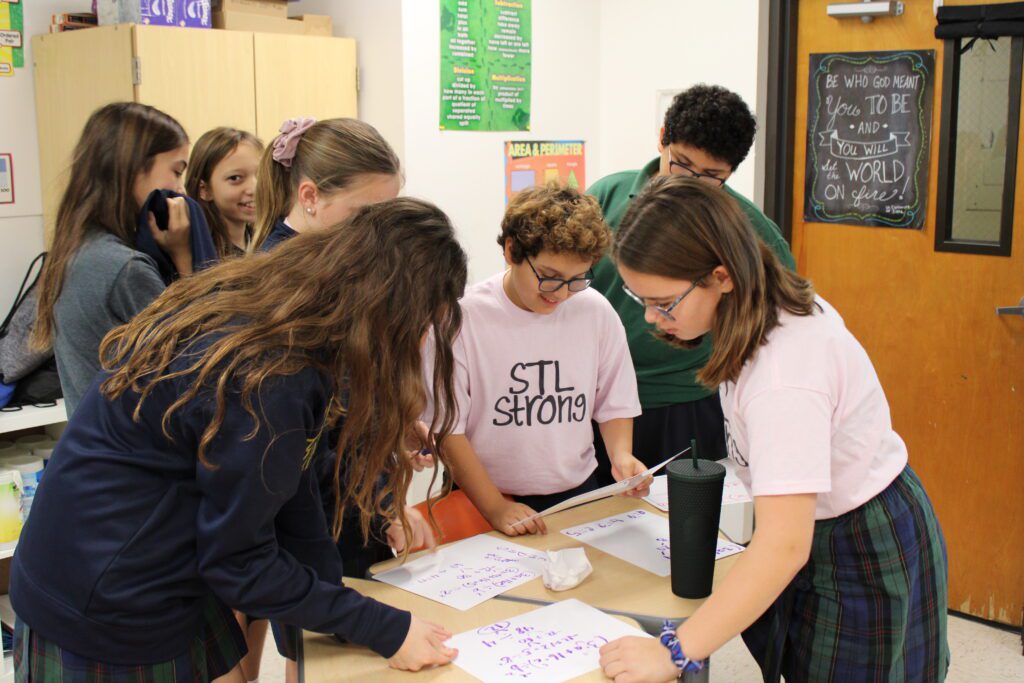
ELA and Reading
The English Language Arts and Reading curricula complement one another to improve effective communication. The courses are designed to enhance reading, writing, speaking, and thinking skills for students. Students should expect to read various genres both in class and independently, write in various formats, study vocabulary, and learn grammatically correct parts of speech and sentence structure. The goal is to produce students who are life-long readers and writers.
- Novel Studies
- Essay Contest for 8th Grade (What It Means To Be Catholic)
- Research Projects (that rotate with other subjects to make cross curricular connections)
- MLA Documentation
- Dramatic Readings
- Creative Writing
- Newspaper Projects
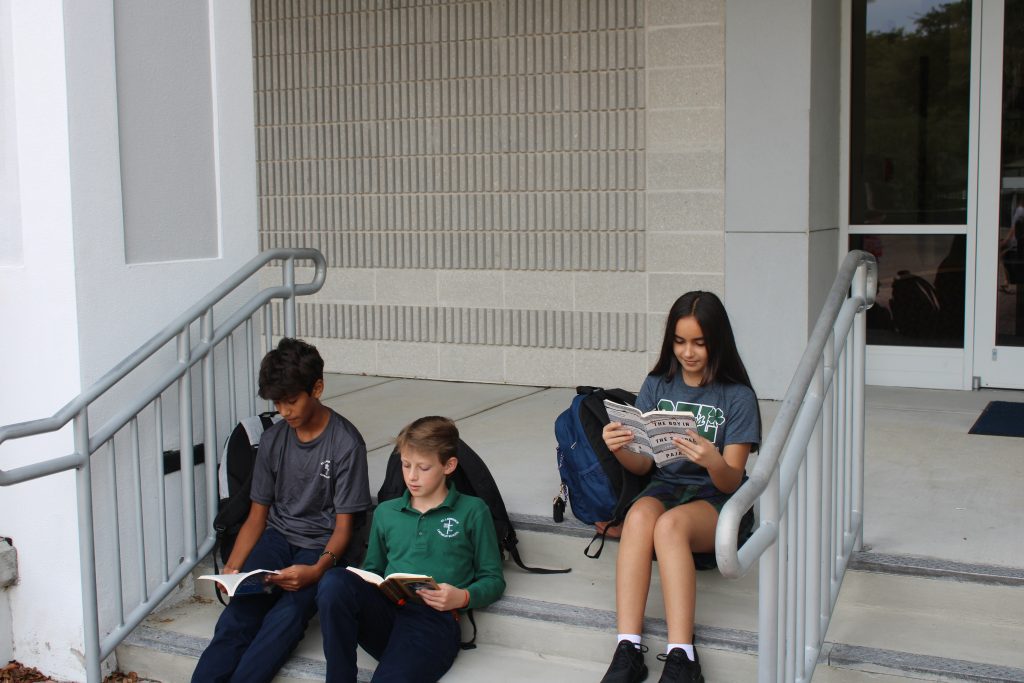
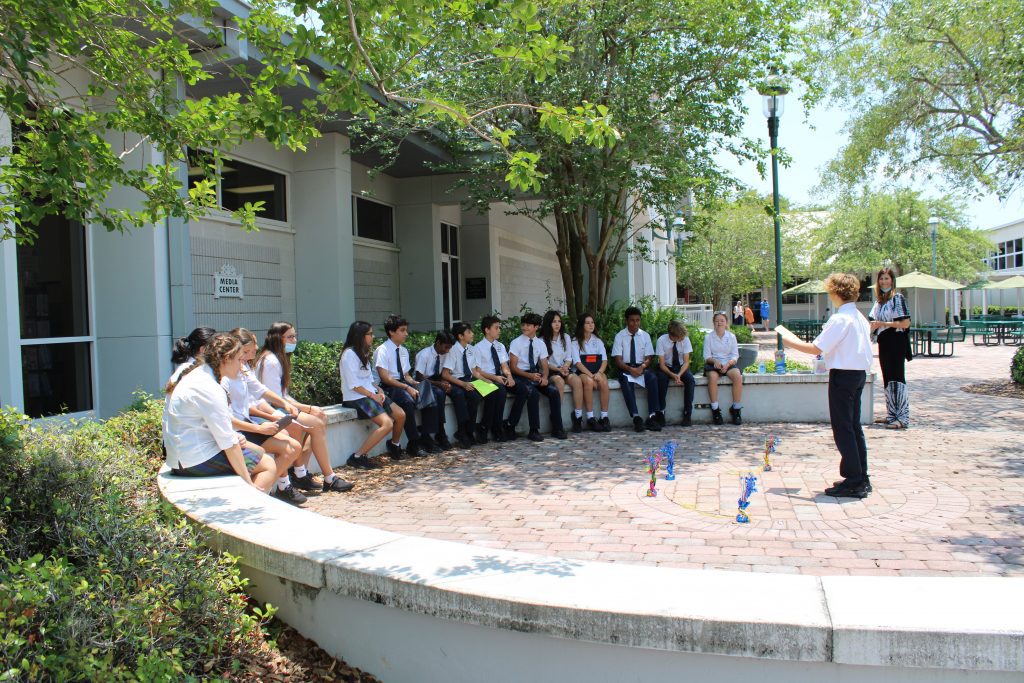
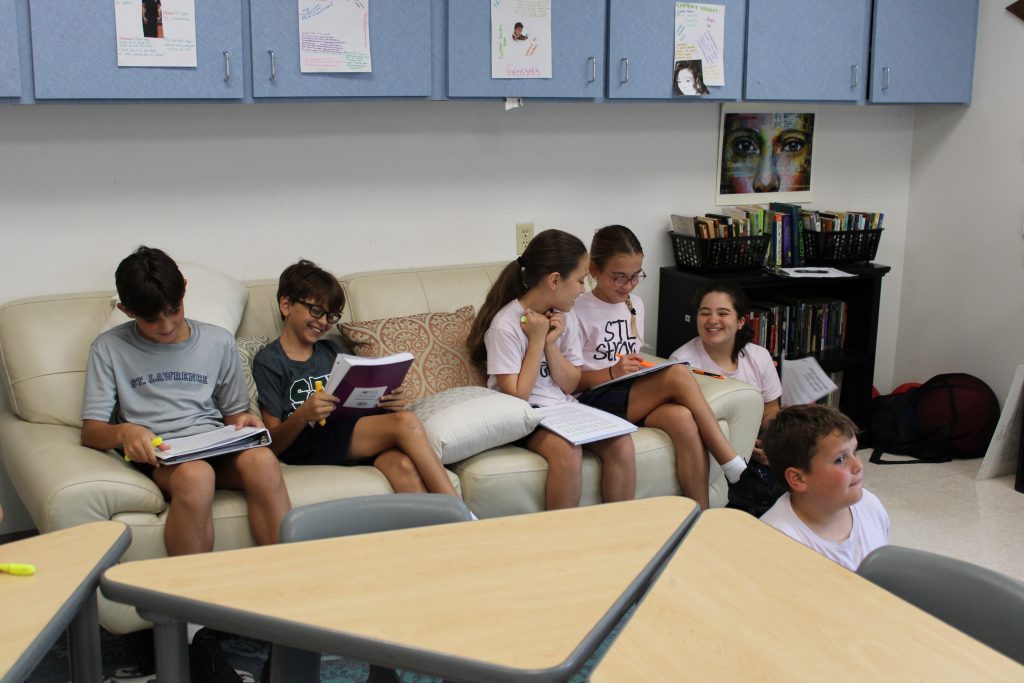
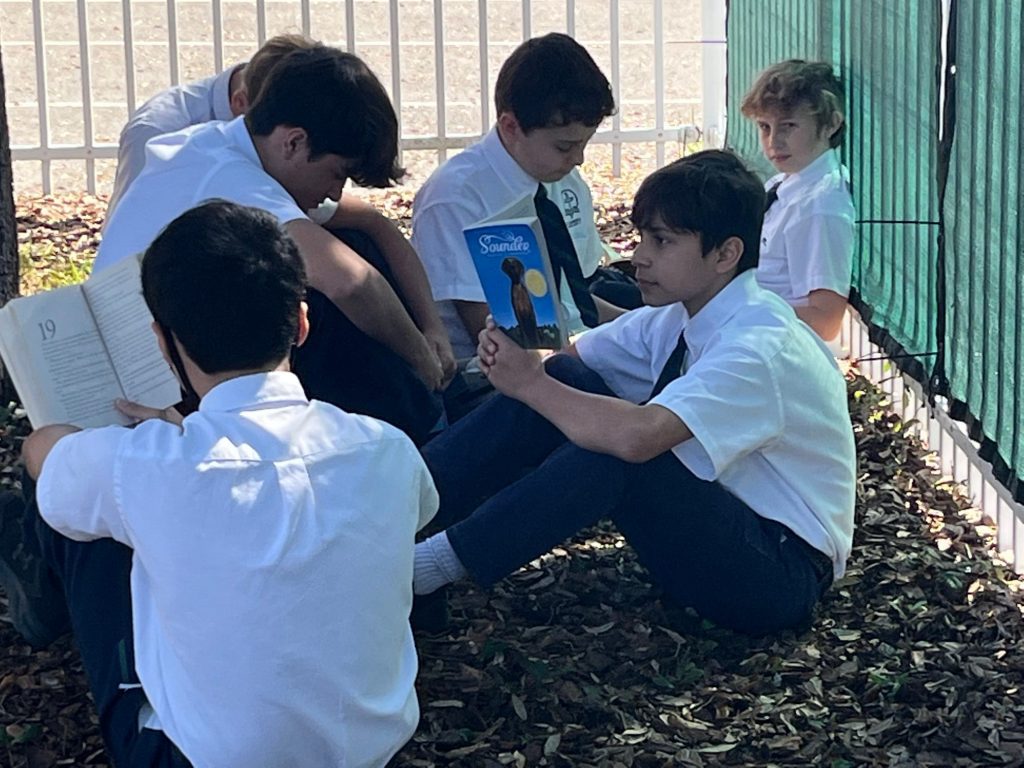
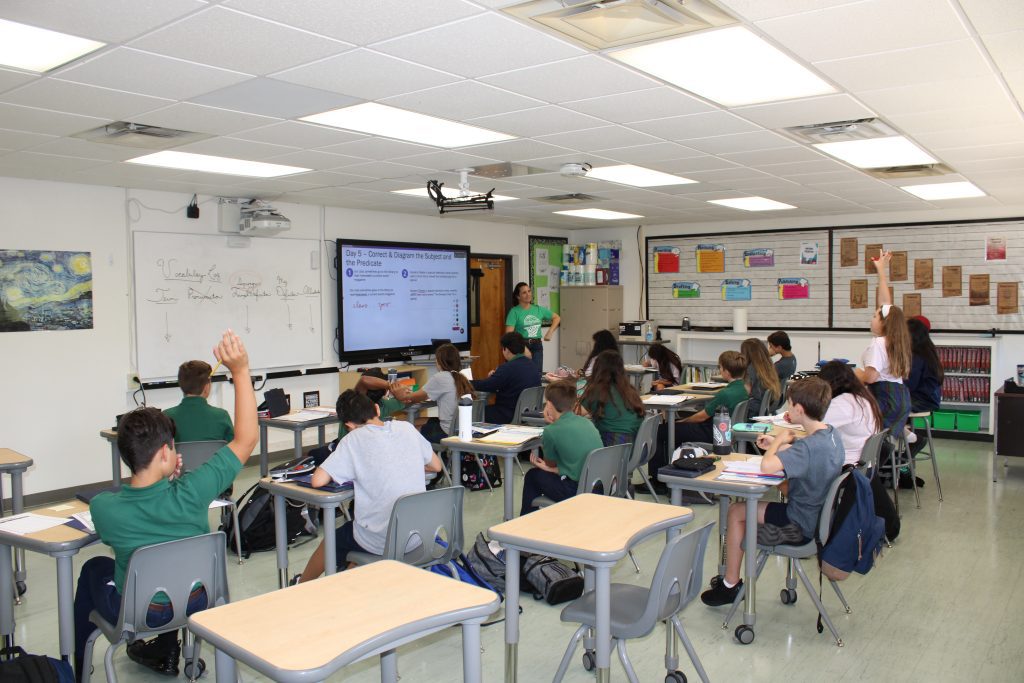

History
World History (6th Grade)
The primary content for this course pertains to the world’s earliest civilizations to the ancient and classical civilizations of Africa, Asia, and Europe. Students will be exposed to the multiple dynamics of world history including economics, geography, politics, achievements, government, and religion/philosophy. Students will study methods of historical inquiry and primary and secondary historical documents.
American Government & Economics: Overview (7th Grade)
We will be starting with American Geography then move into Colonialism, Revolution and the birth of a new nation and how we are constantly growing in our own and the world’s community. Students will be asked to question and discover things they previously did not understand or know about America. We will be using the Socratic Method when having class discussions which result in various types of short writing assignments.
In the second part of the year, we conclude the Civics part of the class and move into Economics. We have many hands-on assessments: A Stock Project (Group) and Life Project- Individual Life Experiences- Budgeting, paying bills, how much does college pay for, etc. Students are expected to complete these and basic information about our Economic system in the U.S.
American History: Overview (8th Grade)
We begin the year with a study of American geography. This is followed by colonialism, revolution, and the birth of a new nation with a focus on how we are constantly growing in our own and the world’s community. Students will be asked to question and discover things they previously did not understand or know about America. We will be using the Socratic Method when having class discussions leading to various types of short writing assignments.
We continue to cover the early American Expansion to the West! We follow this with the beginning of the division in our country that would lead to the Civil War! We explore how the war started with political and economic division in the country which started with the Declaration of Independence. Following a five year struggle, the United States tried to heal from the massive wounds created by the war. We then progress into Reconstruction and rebuilding our country. If time allows we will cover modern American history by decades- 40’s, 60’s and 80’s. Students will increase the number of writing assignments as we move through the second half of the year. This will better prepare them for the rigors of high school.
Science
The middle school science program aligns with Next Generation Science Standards (NGSS). The sixth grade focuses on Earth Science, seventh grade on Life Science, and eighth grade on Physical Science.
The science curriculum helps students develop an awareness of God’s creativity as evidenced throughout our vast universe. Students are afforded the opportunity to observe, explore, and discover throughout the curriculum. The science program is designed to help students increase their thinking skills as well as challenge them to determine cause and effect, apply known concepts to new situations, make inferences, and predict outcomes.
Student experiences have included trips to Weedon Island Preserve Cultural and Natural History Center, The Florida Aquarium (including a dissection lab), and Croc Encounters. Many activities afford the students hands-on experiences such as simulating cells and cell-division with 3-dimensional models, performing DNA extractions and building DNA structures, and exploring properties of matter such as density, sublimation, and pH. Math is routinely integrated into the curriculum. Students are introduced to statistics while studying genetics and are given the opportunity to apply their algebra and geometry skills while exploring Newton’s laws.
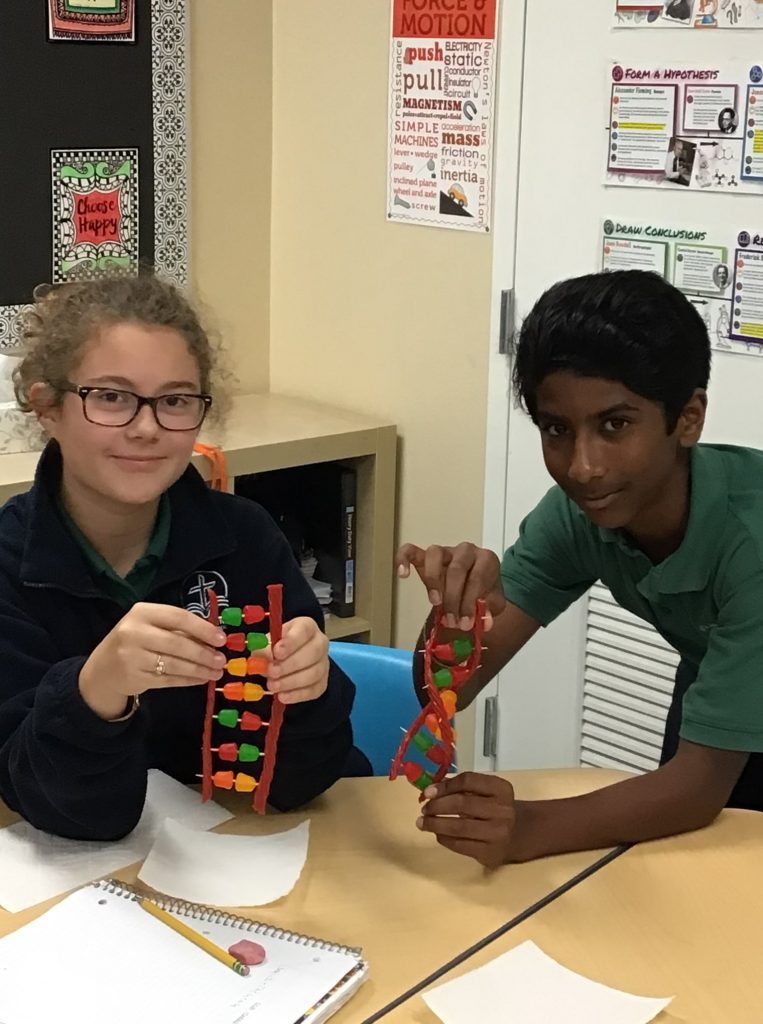
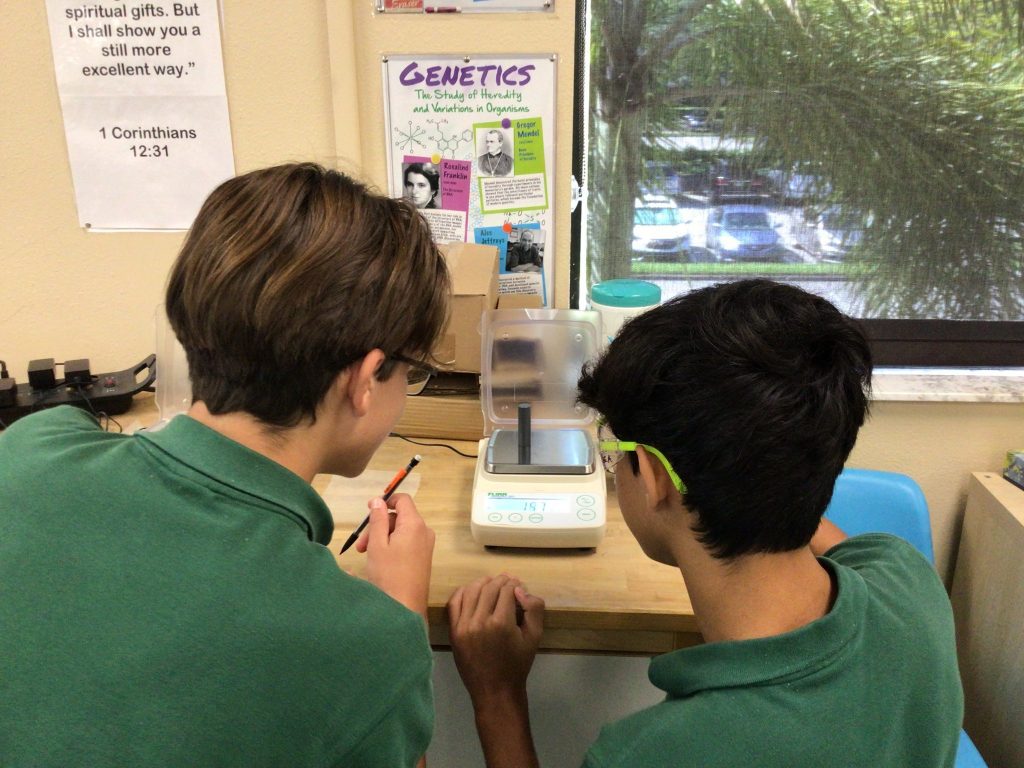

Religion
The religion program at the middle school level at St. Lawrence is designed to instruct students through the traditions and teachings of the Roman Catholic Church and encourage the application of this knowledge. Specifically, the curriculum provides a broad understanding of Sacred Scripture, offers opportunities for prayer and reflection, and seeks to form disciples of Christ.
In 6th grade students walk through the Hebrew Scriptures, the Old Testament, and learn about our ancestors in faith. Students come to understand that the theme of God’s mercy is woven throughout all of Scriptures, connecting the Old Testament covenants and promises to the coming of Jesus Christ. Students are also given opportunities to learn new forms and styles of prayer and how the Church prays and worships throughout the year.
In 7th grade the students turn their focus to the Life of Jesus and how to live as HIs disciples. They explore the New Testament, especially the Gospels and how Jesus is the fulfillment of God’s promises to His people. They also learn about liturgy and the sacraments in the Church.
They continue to grow as they expand their knowledge of faith and their relationship with Jesus, through different forms of prayer.
In 8th grade the students begin in the Acts of the Apostles and learn about the early Church and what happened after Jesus left. They study the history of the Church and learn the struggles and triumphs of its 2000-year history. Once they finish with Church history, they delve into the morality of the Church and how to live a moral and ethical life in the world today. Students complete a study entitled “Theology of the Body” to understand God’s purpose for us, the importance of caring for one’s body, and nurturing relationships, all aligned with Catholic social teaching. They continue to receive opportunities to grow in faith and their spiritual life. The curriculum is supplemented with Sadlier’s: We Believe in 6th grade and We Live our Faith in 7th & 8th. They also use Sacred Scripture, The Laudate App, and Formed.org.
